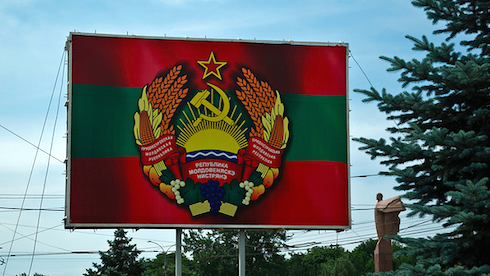In September this year, Transnistria, the separatist region located in the Eastern part of Moldova, is set to celebrate the 24th anniversary of its de-facto independence. And yet there is little scope for celebrations – as only the contested states of Abkhazia, Nagorno-Karabakh and South Ossetia recognise its independence. As minister Sergey Lavrov recently declared in an interview for Bloomberg TV, Russia is officially “in favor of a settlement which would respect territorial integrity and sovereignty of Moldova”.
Russia’s official position is that the only way to achieve this goal is through the creation of a federation uniting the two entities (mainland Moldova and Transnistria), possibly with a third component – Gagauzia (the autonomous administrative region in the southern part of Moldova, inhabited by the Gagauz, a Turkic but Christian Orthodox minority). The reason is simple. The creation of a federation would mean that the deeply pro-Russian Transnistria and maybe also Gagauzia (which is at least as pro-Russian as Transnistria), would have considerable influence on the central government in Chisinau, especially in the field of foreign policy.
Never integrate
For the Russians, such federation would guarantee that Moldova remains a neutral state, and probably never be able to integrate fully in the European or Euroatlantic structures.
Moldova’s stance towards the Transnistrian issue is more complex. After the failure of the 2003 Kozak Memorandum, Chisinau is reluctant to the idea of a federation, and well aware of the possible threats coming from such a solution. Even though the official policy of the Moldovan government is still geared towards reunification, they are very reluctant to put in into practice because of the edge this solution would give to Russian interests in the country, and for the following three reasons.
The political and economic price of reintegration would be very high. The exact figure is hard to estimate, but it is safe to say that the reunification’s cost would reach at least 4 bln USD [around €3.4 billion] (the gas debt accumulated by Tiraspol in the last 20 years, as opposed to Moldova’s current GDP of just $7bn [€5.2 bn]). This would probably result in a massive fall in support for the government. But reunification would also entail a different kind of threat: a political one, embodied by the 220,000 Transnistrians who would have the right to take part in Moldovan elections. Transnistrians would be a strongly pro-Russian electorate.
[[There is virtually no pressure from the Moldovan electorate to find a solution to the conflict]]. Moldovan society’s attitude towards Transnistria seems ambivalent. Most people living on the right bank of the Dniester river have never even been to Transnistria. The region was not a part of the historic Bessarabia, and has virtually no sentimental value for Moldovans.
Illegal activities
The very existence of Transnistria, a territory which functions outside the framework of the international legal system, creates very comfortable conditions for illegal activities whose perpetuation would be made much harder was Transnistria to become a de facto part of Moldova. It is very apparent that local Transnistrian authorities, and the businesses by them controlled, are using their privileged position to make big profits.
The EU would like to see Transnistria reintegrated with Moldova, mainly because the existence of such a lawless entity virtually at the borders of the Union represents a source of instability for the entire area. Federalization is also an option, but in this case Transnistria shouldn’t be granted any special right to block the decisions of the central government.
The Transnistrian dispute has in last few months become one of the key issues that can influence the situation in the region. First, its role has grown in the run up to the closure of the EU-Moldova Association Agreement. The second reason is the Ukraine crisis. The rising Transnistrian role indicates how much Russia is preoccupied with further EU (and possible subsequent NATO) expansion in former soviet republics. Moscow is determined to stop it, or at least counter-balance it, by almost any means.
Was this article useful? If so we are delighted!
It is freely available because we believe that the right to free and independent information is essential for democracy. But this right is not guaranteed forever, and independence comes at a cost. We need your support in order to continue publishing independent, multilingual news for all Europeans.
Discover our subscription offers and their exclusive benefits and become a member of our community now!












